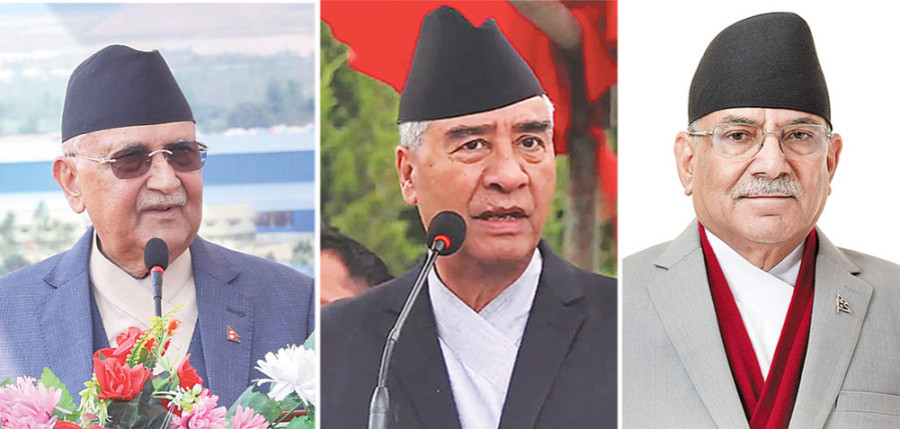Editorial
Now or never
Why aren’t second-rung leaders of big parties uniting to forestall their political leaders' comeback?
Even according to the own records of Nepal Police, it fired over 2,600 live ammunition during the two days of the Gen Z protests earlier this month. Nearly as many rubber bullets were fired. In the course of the protests, 75 people died and thousands were injured. Many of the youngsters who died on the first day were shot in their head and chest. In order to prevent the likely perpetrators of such a dastardly act from escaping the country, the judicial commission investigating the violent suppression of the protests has recommended freezing the passports of five top ex-state officials, including the erstwhile prime minister KP Sharma Oli. Those recommended for action are Ramesh Lekhak, the home minister in the Oli Cabinet, then home secretary Gokarna Mani Duwadi, then National Investigation Department chief Hutaraj Thapa, and then Kathmandu chief district officer Chhabi Rijal.
This was a timely decision. Efforts are still being made to downplay the scale of the state repression. All kinds of infiltrations are being alluded to, including the foreign kind. UML chief and ex-prime minister Oli remains defiant as ever, even refusing to acknowledge that the youngsters who came out on the streets in their hundreds of thousands, all over the country, might have had a legitimate concern. Much of the Nepali Congress rank and file also seems to be in a denial. There is still a shocking lack of realisation of the public anger that had been building against the old political parties and their leaders. How the whole state machinery, including the security forces, were being made to serve the interests of a handful of political elites.
The efforts of the old guard to make a comeback must thus be vehemently resisted, at all levels of the society. Right now, pressure is building on the government to summarily prosecute all those who might be involved, directly or indirectly, in the repression of the Gen Z protests. Yet the commission must be allowed to do its job—and early indicators are that it is on the right track. Only if there is thorough investigation will the findings of the commissions be credible, otherwise, in the long run, summary criminal sentencing could only fuel further political recriminations.
But the old leaders must also know their bounds. Sher Bahadur Deuba, KP Sharma Oli and Pushpa Kamal Dahal had repeatedly led the country, and each time they failed to work according to people’s wishes. If the likes of Oli keep provoking the new government and Gen Z, if they dare mock the martyrdom of young men and women—they should themselves be responsible for the consequences. If they want the new government and its agencies to act responsibly, they too should behave accordingly. Again, in the end, it’s hard to think what the second-rung leaders of the Congress and the UML, the two biggest forces in the erstwhile Parliament, are thinking. Why aren’t they uniting to forestall any chances of a political comeback of Deuba or Oli? For one, the failure to do so would also be an act of electoral hara-kiri.




 10.12°C Kathmandu
10.12°C Kathmandu













